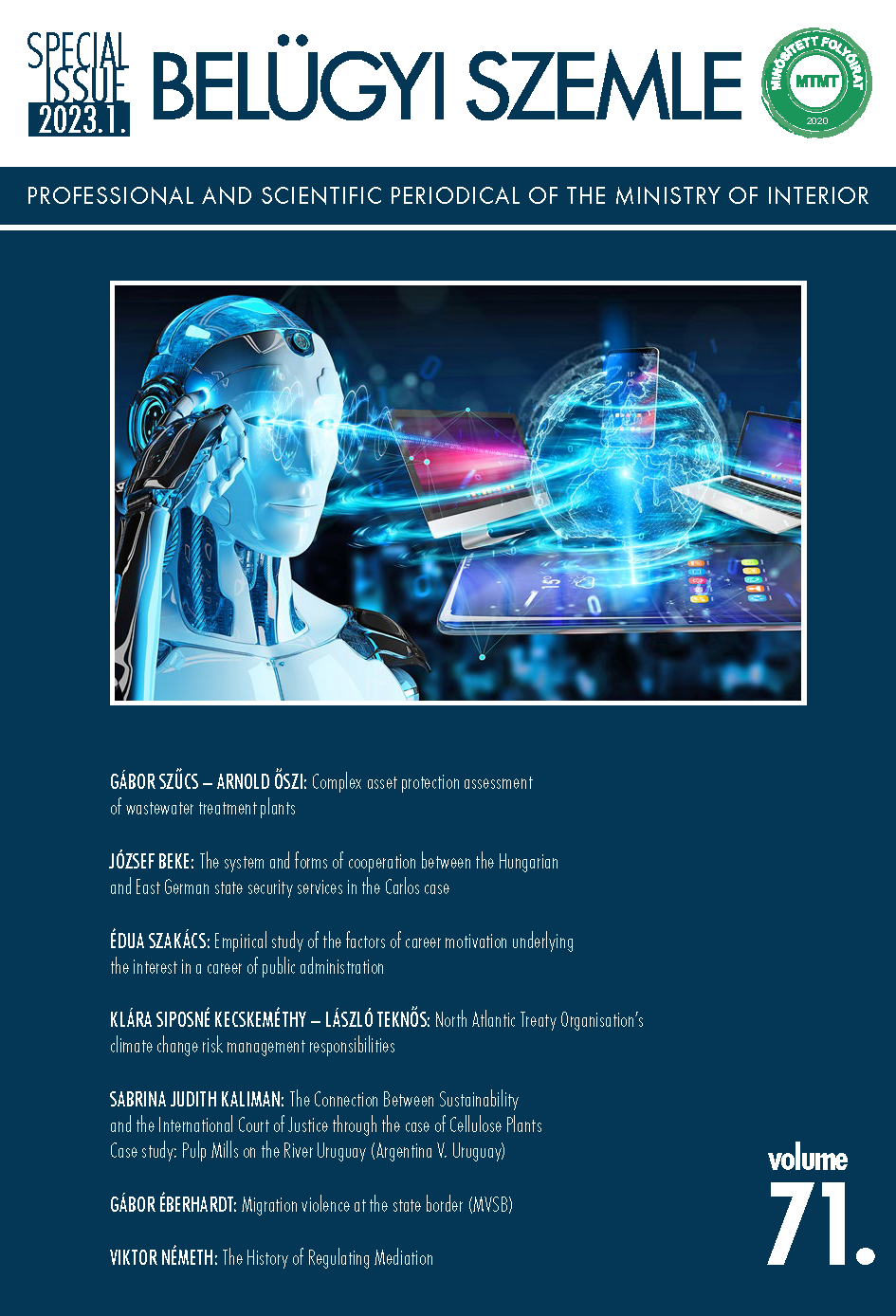Abstract
Aim: The aim of the study is to reveal the reasons behind the declining interest in the public administration career. The data of the Graduate Career Tracking System shows that a considerable part of the students graduating in relevant fields do not start a career in public administration, or leave the career in a short time. In this study I examine how the career motivation of the concerned young adults affect their intention to find a job in the public administration.
Methodology: I conducted the questionary interviews in 2021 during the project of KÖFOP-2.1.5– VEKOP-16-2016-0000 "Strategical support for the personal supplies of the competitive public services". By completing the questionnaire, the participants had to rate it on a four-point Likert scale the carrier motivation factors, their interest in the public service career, the impact of university education and professional practice on interest in public service carrier. 114 students of the Faculty of Public Governance and International Studies of the University of Public Services participated in the study. 65 percent of the participants were female, 35 percent were male. 71 percent of the sample were full-time student, 29 percent were studying in correspondence courses.
Findings: In accordance with my hypothesis the outcomes of the study confirmed that the participating students have an external rather than an internal career motivation, which has a negative impact on their interest in the career. The interest of the participants in the public services as a career showed a decreasing trend through their years spent in the university. This effect was most easily captured in the answers of the youngest, full time students. During the research I could identify three ways of motivation: strong, identified and extrinsic. In line with the expectations, the interest for the career of those having extrinsic motivation was the smallest and of those having strong motivation was the greatest.
Value: The results of the research contribute to the understanding of the factors that determine the career choice of young employees. However further research is needed to discover why the external motivation of the participants is getting stronger during the years of university studies and how this tendency can be turned.

